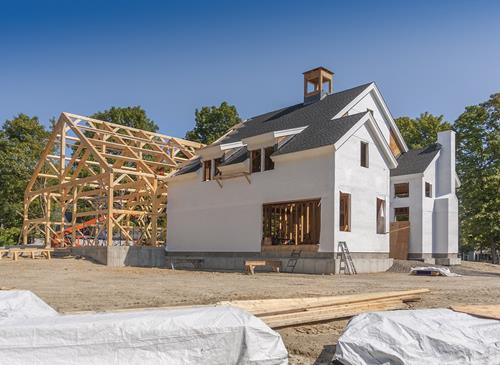Reverse mortgages are sometimes misunderstood but — in the right situations — they can be highly beneficial for homebuyers and homeowners ages 62+. Here’s a true story of how a Waterstone Mortgage reverse mortgage for a home purchase was the right solution for a Realtor, a financial planner, and a senior couple — a win, win, win!
The Situation: Finding Retirement Housing
A client contacted their financial advisor in October 2022. The client's parents had recently sold their home and were now renting. The client needed help deciding where to move to lower their cost of living.
The parents had been saving for retirement their entire lives. However, they had not expected the increased cost of living.
As a result, the financial advisor turned to a Waterstone Mortgage loan originator for guidance on using a reverse mortgage to purchase a new home.
The Solution: A Reverse for Purchase
The senior couple decided to move to Oklahoma, and the Waterstone Mortgage loan originator got a referral for a local Realtor there.
As it turns out, the listing Realtor also refers Waterstone Mortgage to her clients. So, even though she was not familiar with reverse mortgages, she was comfortable with Waterstone Mortgage.
The Realtor thought reverses take 45-60 days to close, but the loan originator assured her we could close in 30 days. She was skeptical, but she accepted the 30-day offer. The loan closed in 27 days, and all parties were delighted.
Is there someone in your life (ages 62+) who might benefit from a reverse mortgage? We offer complimentary consultations. Contact a trusted Reverse Mortgage Specialist at Waterstone Mortgage to get started.
It’s our goal to help senior citizens create a more financially stable and secure retirement.
These materials are not from HUD or FHA and were not approved by HUD or a government agency.
IMPORTANT INFORMATION: When the loan is due and payable, some or all of the equity in the property that is the subject of the reverse mortgage no longer belongs to borrowers, who may need to sell the home or otherwise repay the loan with interest from other proceeds. The lender may charge an origination fee, mortgage insurance premium, closing costs and servicing fees (added to the balance of the loan). The balance of the loan grows over time and the lender charges interest on the balance. A reverse mortgage may increase the principal balance of your loan and decrease the equity you may have. It is a negatively amortizing loan program.
Borrowers are responsible for paying property taxes, homeowner’s insurance, maintenance, and related taxes (which may be substantial). We do not establish an escrow account for disbursements of these payments. A set-aside account can be set up to pay taxes and insurance and may be required in some cases.
While you cannot lose your home under normal circumstances, you could be subject to foreclosure for failure to pay property taxes, homeowner’s insurance, maintenance costs and otherwise comply with the loan terms.
Borrowers must occupy home as their primary residence and pay for ongoing maintenance; otherwise the loan becomes due and payable. The loan also becomes due and payable (and the property may be subject to a tax lien, other encumbrance, or foreclosure) when the last borrower, or eligible non-borrowing surviving spouse, dies, sells the home, permanently moves out, defaults on taxes, insurance payments, or maintenance, or does not otherwise comply with the loan terms. Interest is not t ax-deductible until the loan is partially or fully repaid.





